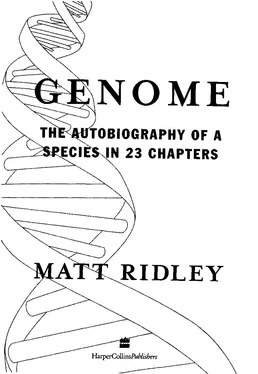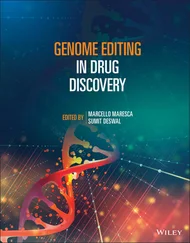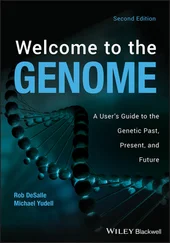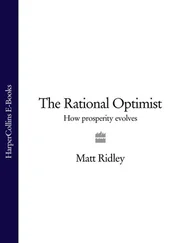Genome - Matt Ridley
Здесь есть возможность читать онлайн «Genome - Matt Ridley» — ознакомительный отрывок электронной книги совершенно бесплатно, а после прочтения отрывка купить полную версию. В некоторых случаях можно слушать аудио, скачать через торрент в формате fb2 и присутствует краткое содержание. Жанр: Старинная литература, на английском языке. Описание произведения, (предисловие) а так же отзывы посетителей доступны на портале библиотеки ЛибКат.
- Название:Matt Ridley
- Автор:
- Жанр:
- Год:неизвестен
- ISBN:нет данных
- Рейтинг книги:5 / 5. Голосов: 1
-
Избранное:Добавить в избранное
- Отзывы:
-
Ваша оценка:
- 100
- 1
- 2
- 3
- 4
- 5
Matt Ridley: краткое содержание, описание и аннотация
Предлагаем к чтению аннотацию, описание, краткое содержание или предисловие (зависит от того, что написал сам автор книги «Matt Ridley»). Если вы не нашли необходимую информацию о книге — напишите в комментариях, мы постараемся отыскать её.
Matt Ridley — читать онлайн ознакомительный отрывок
Ниже представлен текст книги, разбитый по страницам. Система сохранения места последней прочитанной страницы, позволяет с удобством читать онлайн бесплатно книгу «Matt Ridley», без необходимости каждый раз заново искать на чём Вы остановились. Поставьте закладку, и сможете в любой момент перейти на страницу, на которой закончили чтение.
Интервал:
Закладка:
Support for this idea comes from the so-called Flynn effect. A New Zealand-based political scientist, James Flynn, noticed in the 1980s that IQ is increasing in all countries all the time, at an average rate of about three IQ points per decade. Quite why is hard to determine. It might be for the same reason that height is increasing: improved childhood nutrition. When two Guatemalan villages were given ad-lib protein supplements for several years, the IQ of children, measured ten years later, had risen markedly: a Flynn effect in miniature. But IQ scores are still rising just as rapidly in well-nourished western countries. Nor can school have much to do with 9 0 G E N O M E
it, because interruptions to schooling have demonstrably temporary effects on IQ and because the tests that show the most rapid rises are the ones that have least to do with what is taught in school. It is the ones that test abstract reasoning ability that show the steepest improvements. One scientist, Ulric Neisser, believes that the cause of the Flynn effect is the intense modern saturation of everyday life with sophisticated visual images — cartoons, advertisements, films, posters, graphics and other optical displays — often at the expense of written messages. Children experience a much richer visual environment than once they did, which helps develop their skills in visual puzzles of the kind that dominate IQ tests.13
But this environmental effect is, at first sight, hard to square with the twin studies suggesting such a high heritability for I Q . As Flynn himself notes, an increase of fifteen IQ points in five decades implies either that the world was full of dunces in 1950 or that it is full of geniuses today. Since we are not experiencing a cultural renaissance, he concludes that IQ measures nothing innate. But if Neisser is right, then the modern world is an environment that encourages the development of one form of intelligence - facility with visual symbols. This is a blow to 'g', but it does not negate the idea that these different kinds of intelligence are at least partly heritable. After two million years of culture, in which our ancestors passed on learnt local traditions, human brains may have acquired (through natural selection) the ability to find and specialise in those particular skills that the local culture teaches, and that the individual excels in. The environment that a child experiences is as much a consequence of the child's genes as it is of external factors: the child seeks out and creates his or her own environment. If she is of a mechanical bent, she practises mechanical skills; if a bookworm, she seeks out books. The genes may create an appetite, not an aptitude.
After all, the high heritability of short-sightedness is accounted for not just by the heritability of eye shape, but by the heritability of literate habits. The heritability of intelligence may therefore be about the genetics of nurture, just as much as the genetics of nature. What a richly satisfying end to the century of argument inaugurated by Galton.
C H R O M O S O M E 7
I n s t i n c t
The tabula of human nature was never rasa.
W. D. Hamilton
Nobody doubts that genes can shape anatomy. The idea that they also shape behaviour takes a lot more swallowing. Yet I hope to persuade you that on chromosome 7 there lies a gene that plays an important part in equipping human beings with an instinct, and an instinct, moreover, that lies at the heart of all human culture.
Instinct is a word applied to animals: the salmon seeking the stream of its birth; the digger wasp repeating the behaviour of its long-dead parents; the swallow migrating south for the winter -
these are instincts. Human beings do not have to rely on instinct; they learn instead; they are creative, cultural, conscious creatures.
Everything they do is the product of free will, giant brains and brainwashing parents.
So goes the conventional wisdom that has dominated psychology and all other social sciences in the twentieth century. To think otherwise, to believe in innate human behaviour, is to fall into the trap of determinism, and to condemn individual people to a heartless 9 2 G E N O M E
fate written in their genes before they were born. No matter that the social sciences set about reinventing much more alarming forms of determinism to take the place of the genetic form: the parental determinism of Freud; the socio-economic determinism of Marx; the political determinism of Lenin; the peer-pressure cultural determinism of Franz Boas and Margaret Mead; the stimulus—response determinism of John Watson and B. F. Skinner; the linguistic determinism of Edward Sapir and Benjamin Whorf. In one of the great diversions of all time, for nearly a century social scientists managed to persuade thinkers of many kinds that biological causality was determinism while environmental causality preserved free will; and that animals had instincts, but human beings did not.
Between 1950 and 1990 the edifice of environmental determinism came tumbling down. Freudian theory fell the moment lithium first cured a manic depressive, where twenty years of psychoanalysis had failed. (In 1995a woman sued her former therapist on the grounds that three weeks on Prozac had achieved more than three years of therapy.) Marxism fell when the Berlin wall was built, though it took until the wall came down before some people realised that subservience to an all-powerful state could not be made enjoyable however much propaganda accompanied it. Cultural determinism fell when Margaret Mead's conclusions (that adolescent behaviour was infinitely malleable by culture) were discovered by Derek Freeman to be based on a combination of wishful prejudice, poor data collection and adolescent prank-playing by her informants. Behaviourism fell with a famous 1950s experiment in Wisconsin in which orphan baby monkeys became emotionally attached to cloth models of their mothers even when fed only from wire models, thus refusing to obey the theory that we mammals can be conditioned to prefer the feel of anything that gives us food — a preference for soft mothers is probably innate.1
In linguistics, the first crack in the edifice was a book by Noam Chomsky, Syntactic structures, which argued that human language, the most blatantly cultural of all our behaviours, owes as much to instinct as it does to culture. Chomsky resurrected an old view of language, I N S T I N C T 9 3
which had been described by Darwin as an 'instinctive tendency to acquire an art'. The early psychologist William James, brother of the novelist Henry, was a fervent protagonist of the view that human behaviour showed evidence of more separate instincts than animals, not fewer. But his ideas had been ignored for most of the twentieth century. Chomsky brought them back to life.
By studying the way human beings speak, Chomsky concluded that there were underlying similarities to all languages that bore witness to a universal human grammar. We all know how to use it, though we are rarely conscious of that ability. This must mean that part of the human brain comes equipped by its genes with a specialised ability to learn language. Plainly, the vocabulary could not be innate, or we would all speak one, unvarying language. But perhaps a child, as it acquired the vocabulary of its native society, slotted those words into a set of innate mental rules. Chomsky's evidence for this notion was linguistic: he found regularities in the way we spoke that were never taught by parents and could not be inferred from the examples of everyday speech without great difficulty. For example, in English, to make a sentence into a question we bring the main verb to the front of the statement. But how do we know which verb to bring? Consider the sentence, 'A unicorn that is eating a flower is in the garden.' You can turn that sentence into a question by moving the second 'is' to the front: 'Is a unicorn that is eating a flower in the garden?' But you make no sense if you move the first 'is': 'Is a unicorn that eating a flower is in the garden?' The difference is that the first 'is' is part of a noun phrase, buried in the mental image conjured by not just any unicorn, but any unicorn that is eating a flower. Yet four-year-olds can comfortably use this rule, never having been taught about noun phrases. They just seem to know the rule. And they know it without ever having used or heard the phrase 'a unicorn that is eating a flower' before. That is the beauty of language - almost every statement we make is a novel combination of words.
Читать дальшеИнтервал:
Закладка:
Похожие книги на «Matt Ridley»
Представляем Вашему вниманию похожие книги на «Matt Ridley» списком для выбора. Мы отобрали схожую по названию и смыслу литературу в надежде предоставить читателям больше вариантов отыскать новые, интересные, ещё непрочитанные произведения.
Обсуждение, отзывы о книге «Matt Ridley» и просто собственные мнения читателей. Оставьте ваши комментарии, напишите, что Вы думаете о произведении, его смысле или главных героях. Укажите что конкретно понравилось, а что нет, и почему Вы так считаете.












